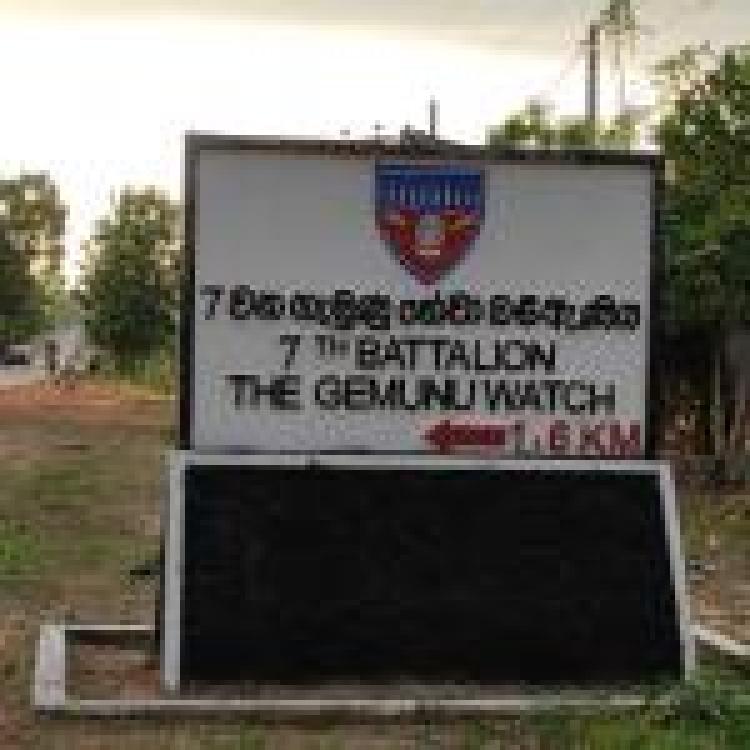Critiquing government mishandling of high-profile sexual violence cases across South Asia, Human Rights Watch has called on governments to “disregard populist death penalty rhetoric and listen to their own experts to prevent and end sexual violence against women”.
Sexual violence in Sri Lanka
The report notes that whilst there is a growing movement for legal reform in Sri Lanka, there remains the pervasive harassment of families of the disappeared, often at the hands of Sri Lanka’s security forces.
 File photograph: A Tamil torture victim's scars on his back. ITJP.
File photograph: A Tamil torture victim's scars on his back. ITJP.
The International Truth and Justice Project reported in August 2020, that Tamil activists involved in the search for the truth about Sri Lanka’s disappeared were subject to abduction, torture, and rape.
"In detention, they experienced brutal torture at the hands of the security forces, such as whipping of the soles of the feet, blows to sexual organs, cigarette burns, branding with a heated metal rod, water torture, asphyxiation, suspension in stress positions, mock executions and death threats, as well as rape, including gang rape," the press release stated.
Tamil queer voices face a particular risk due to the militarisation of the North-East and the targeting by Sri Lanka’s security forces of “vagrants” for abuse and sexual violence.
Read more here: Tamil LGBTQ voices face even greater risk in Sri Lanka
Sexual violence and the death penalty
HRW notes that instead of making meaningful reforms, governments in the region have responded by making populist calls to execute rapists.
In Pakistan the Prime Minister called for the public execution of rapists whilst in Bangladesh this year, the death penalty was imposed for rape. Indian law permits capital punishment for repeat rape offenders or for the rape of children under age 12.
HRW notes that the imposition of the death penalty may actually deter some survivors from coming forward and experts are concern about deficiencies in the judicial system in using such power. A key concern is the right to a fair trial.
“When our justice system is not so strong, a death penalty sentence may actually result in the death of an innocent person,” noted Ikleela Hameed, founder of Voice of Children in the Maldives.
Vrinda Grover, a lawyer from India further stated:
“[The] death penalty is not a deterrent for any crime […] It lets the state off the hook from doing the work that the state needs to do in order to ensure that women and girls live free lives in this country.”
Sexual violence and the legal system
HRW also highlights that survivors of sexual violence often face insurmountable obstacles in court, with the conviction rate for sexual violence being extremely low across the region. In Bangladesh, it is estimated that fewer than one per cent of rape cases investigated by police lead to convictions.
Dr Lhamo Yangchen Sherpa, an expert in Nepal, highlights that this process is often drawn out:
“You then have to go to the court, which might take years and years. … [The accused] have good lawyers, which means that the case either gets dissolved or the case goes on for a very long time. That’s why people don’t report or they are settled outside of the court.”
This process, Shabnam Salehi, commissioner at the Afghanistan Independent Human Rights Commission, notes can often re-traumatise survivors of sexual violence. She told HRW:
“The judges still consider [the] victim as a criminal, and they ask a lot of questions that is against the human dignities”.
Addressing sexual violence
Speaking to Umama Zillur, founder and director of Kotha, a feminist organization against gender-based violence in Bangladesh, HRW notes that children receive very little to no education about sexuality, consent, and healthy relationships. Zillur has been advocating for “comprehensive sexuality education to be made mandatory in all our schools”.
Meenakshi Ganguly, South Asia director, stated on the issue of sexual violence that:
“Women and girls across South Asia are fed up with their governments’ failure to tackle sexual violence,” […] “They have long watched their governments tolerate – or even facilitate – impunity for sexual violence, and they are taking to the streets and demanding change now.”
Read more from HRW




